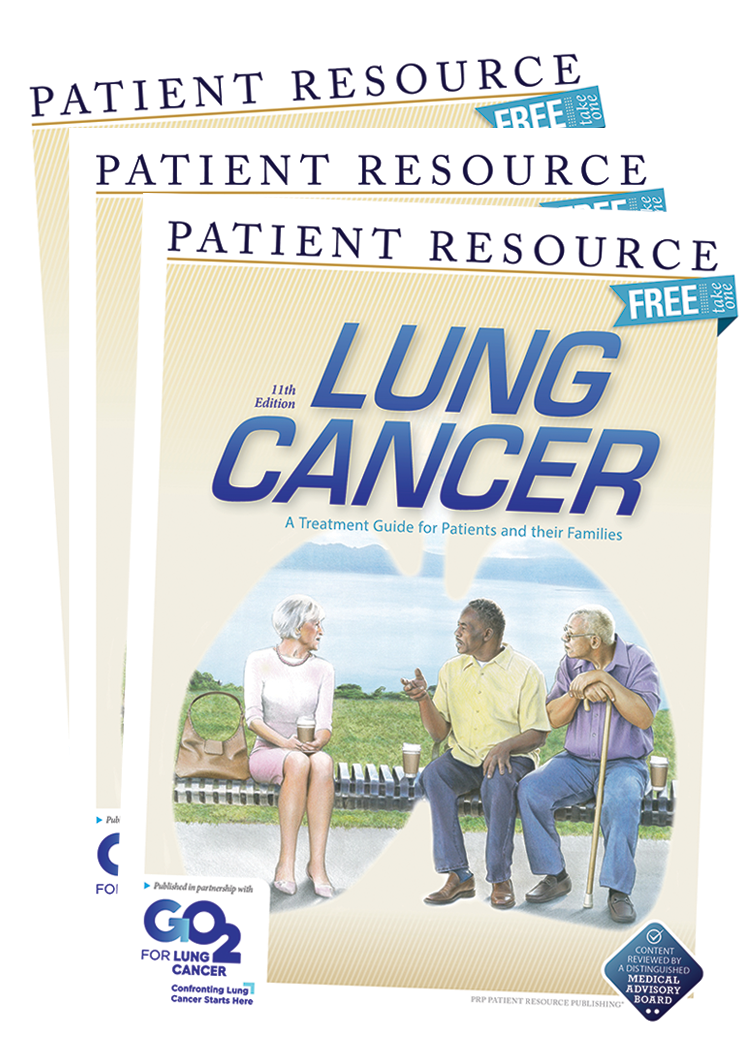Lung Cancer
Nutrition
You might be surprised, but some research indicates that better nutrition might promote faster healing from surgeries and other invasive procedures, even increasing the success rate of cancer treatment. Meeting with a registered dietitian or nutritionist early in your treatment cycle may help you make the best decisions on how you fuel your body during this time. They can also assist you in developing a healthy post-treatment plan.
It’s important to note that cancer and its side effects can affect your ability to eat, your desire to eat and how food tastes or smells. Feeling sick to your stomach, tired or depressed may also affect your eating habits. Your doctor may recommend nutrition therapy, which is treatment based on nutrition that may range from simple changes in your diet to intravenous or tube feeding. It often begins with nutritional counseling, also referred to as dietary counseling, in which dietitians or health professionals with special training in nutrition help you make healthy food choices and form smart eating habits.
The goal of nutritional counseling is to help patients be healthy during and after treatment, stay strong enough to prevent or manage infections and lower the risk of recurrence. It may help patients recover more quickly and spend less time in the hospital.
Managing Appetite Loss
One of the biggest nutrition challenges you may face during treatment is loss of appetite. Don’t be hard on yourself if you don’t feel like eating. This side effect is common; however, when you can’t eat or don’t want to eat, you may be at risk for losing weight. Because a healthy diet can help you gain strength, it helps to know what to do — and what not to do.
In general, try to consume a wide variety of healthy foods and drink plenty of fluids. Choose high-protein foods because proteins are necessary for immune system health and body tissue repair. If your body doesn’t get enough protein, it may start to break down muscle to get the energy it needs. This increases the time it takes your body to recover from illness and hinders your body’s ability to resist infection. When your body is working hard to recover, it requires even more protein than usual, so be sure to include plenty in your diet.
How Dietitians Work With You
Dietitians play an important and valuable role on your health care team. They can develop a personalized nutrition plan with these goals in mind.
- Prevent your treatment from being interrupted because of malnutrition.
- Ease the side effects of treatment.
- Improve your overall quality of life.
Your dietitian will work with you and your caregiver to develop a plan specifically for you. You will discuss misinformation about nutrition, fad diets and “miracle” cures, as well as common concerns, such as poor appetite, the inability to drink enough fluids or taste changes. Your dietitian will listen to your concerns and develop a meal plan based around your nutritional needs while addressing your unique taste preferences and the foods you can tolerate. Your dietitian may also function as a liaison between you and your medical team, helping to relay or explain information, and serve as an advocate for you.
What to Expect at the First Meeting
Before your first appointment with a dietitian, it’s a good idea to make a list of questions or concerns you may have. Bring a list of the foods you typically eat or a food diary and any questions about foods or supplements. It may help to bring the package or a photo of the item in question, including the food label and list of ingredients. Bring along your caregiver if she or he is responsible for buying groceries and making meals to make sure everyone is on the same page.
At your initial meeting, your dietitian will likely evaluate you and your current nutritional status to identify any deficiencies. Don’t worry if your diet has not been 100 percent healthy. Dietitians don’t focus on the past food choices you made. Their role is to educate you so you can make better choices in the future. You will likely receive easy, practical tips you can use on a daily basis as well as several recipes and recommended foods.
The Importance of Water
Your body needs water to function and to prevent dehydration, which can lead to other problems. Daily fluid needs vary from person to person based on health, activity level and geographic area. The general recommendation is 10 cups of water (80 ounces) a day for men and eight cups (64 ounces) for women. Although you get some water from the foods you eat, such as fruits, vegetables, milk and soups, it’s not enough.
Do your best to consume more fluids, including water, especially if you experience side effects, such as diarrhea or vomiting. They may cause you to lose additional fluid, increasing your risk for dehydration. If diarrhea is severe, you may not be able to absorb plain water, and your doctor may recommend a specialized oral rehydration solution. Talk to your doctor or dietitian for more information.



